To be the best digital retail company, we have to put people at the center of our activities
Interviewed by Germain Terreaux and Sirko Siemssen
Interviewed by Germain Terreaux and Sirko Siemssen

Rami Baitieh became Executive Director of Carrefour France in July 2020. However, he would tell you that, at Carrefour, the real boss is the customer. Following this philosophy, Rami Baitieh has been transforming the culture in Carrefour stores in France. When the COVID-19 pandemic hit, the changes that were already underway accelerated even more.
While customers have renewed their appreciation for supermarkets, they also face new pressures on their time and their spending power. To respond to their demands, Carrefour created a matrix called the 555: five commitments in three areas – trust, service, and experience. Rami Baitieh talked about the food retail industry’s challenges and his solutions with Germain Terreaux, Partner in Oliver Wyman’s Retail Practice, and Sirko Siemssen Global Leader of the Practice.
Customers are saying, “I'm changing, and I want you to change with me.” We need to understand every category of customer. Our response is a two-tiered strategy.
First: problem solving. The customer wants to buy a product, but it’s not available. They want to buy fruits and vegetables, but the quality is not sufficient. Or they want to pay, but there is a long line. The 555 matrix translates these demands into commitments by Carrefour. The products must be available. The fruit and vegetables are the best price and quality. Customers don’t have to wait to check out. Then the whole company is organized to act on these priorities. They are written in stone and unimpeachable.
555 Culture
The matrix addresses five customer commitments in each of three areas — trust, service, and experience. Please swipe left/right to view English and French versions.
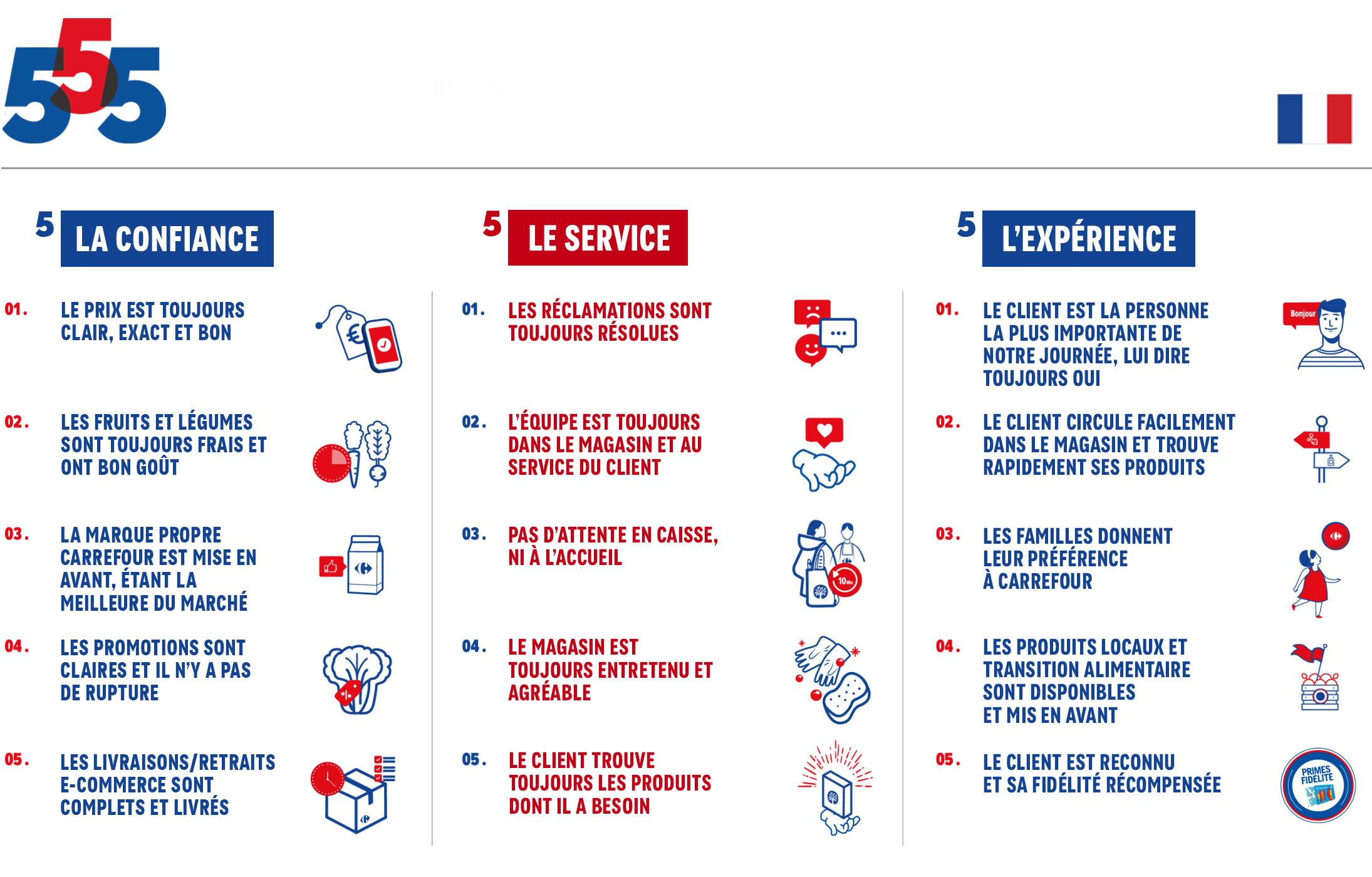
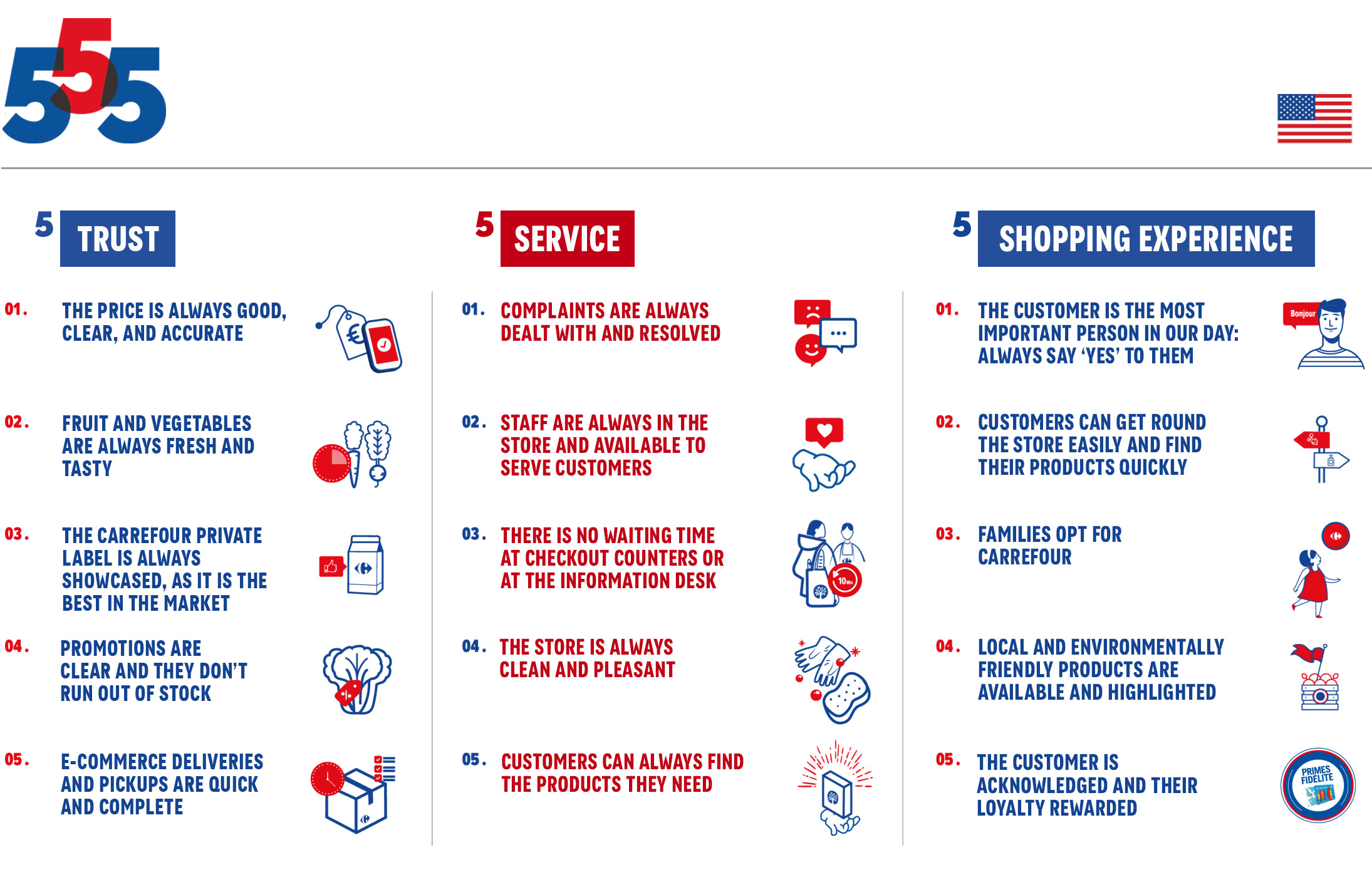
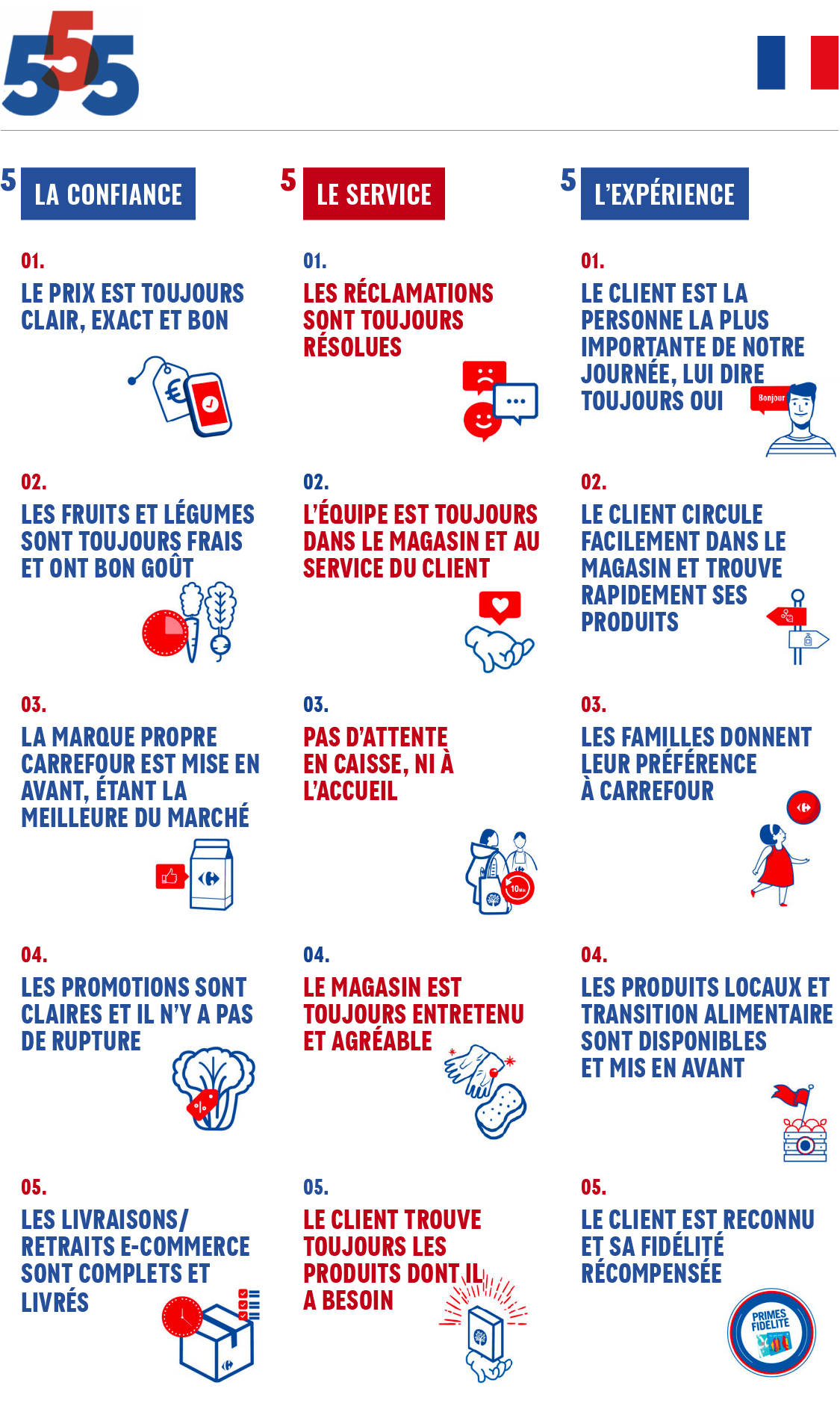
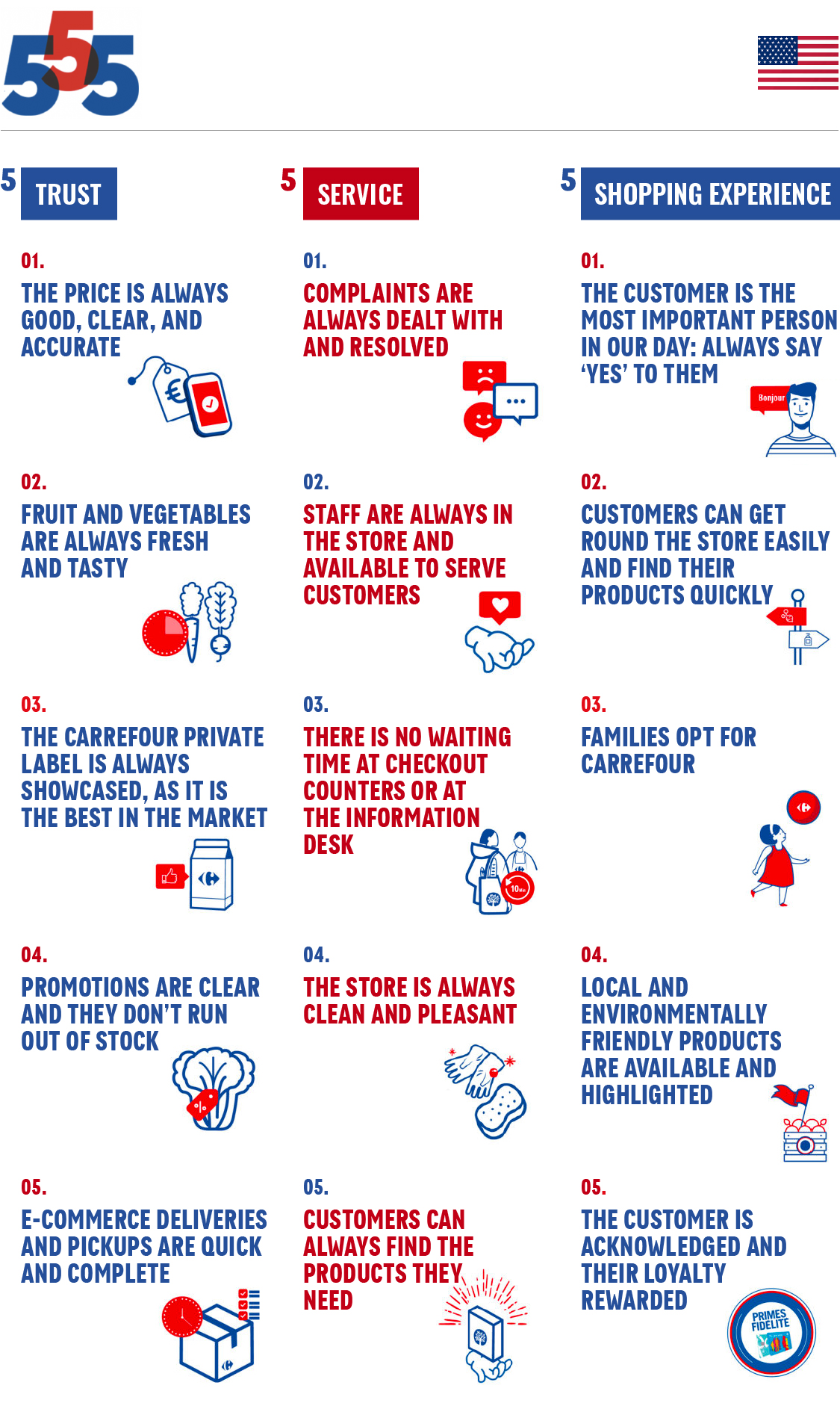
Source: Carrefour
Second: responding to new behaviors. We identified 16 categories of customers, or personas. Some have only a small budget. Others are concerned with social responsibility. There are seniors, couples with no kids, customers with pets, and people who do lots of physical activity. We address the needs of every category, and we do not offer them the same discounts, offers, and organic ranges.
For example, we have been sending catalogues to all of our customers for 30-40 years. However, in our store in Lille for instance, we serve large numbers of students and commuters, who don’t need paper catalogues. So we stopped sending them, and there has been no impact on that store’s sales. In other stores, where we found the majority persona to be seniors, we continued sending the catalogues. These personas let us perform a kind of surgery on our offers and our costs.
Recently we have decided to stop the systematic unaddressed mailing of paper catalogs in Paris and Lyon; this allowed us to save 1000 tons of paper per year.
In the future, Carrefour has got to be the best digital retail company, and we have accelerated this change. Customers now are using the spectrum of online and offline options. These are our omnichannel customers. Many prefer to go digital for some products on some days – and in other cases, they go to stores. At Christmas, a customer might buy some toys online, but for others they want to take their kids to the store to see their reaction. Another customer likes to shop themselves but then wants their purchases delivered. They leave their trolley at the checkout, and we take care of it. Then there’s a customer who doesn’t have time to go round the store but wants to pick up the goods themselves: We prepare their online order, and they go to the drive thru. Other customers are totally online. Carrefour is creating this whole ecosystem so that they are all happy.
Consumers and governments have realized once again that retail — and food retail in particular — is indispensable. We stayed open, and our employees went to work, like nurses, doctors, and policemen. We were a first-necessity sector. But some companies adapted faster than others: We have seen bigger market share shifts in the last two years than the decade before — and there is still opportunity to outgrow the market.
The retail sector is based on large volumes and slim margins. Our success is rooted in satisfying the customer, so that they come back and we continue to cater to their needs. Defending consumer prices and ensuring a reliable supply of essential goods is a key role. We have to play it, and we always will.
There is a second aspect to the price rises. For the last 20 years, we haven’t known serious inflation in Europe. By now most players lost the knowledge of how to manage it. Consumers are not used to it. Manufacturers are not used to it. Most retailers are not used to it. Carrefour, on the other hand, has strong experience in countries with high inflation like Brazil or Argentina. We are taking this situation very seriously. Carrefour is fully committed to protecting its customers’ purchasing power, while continuing to reinforce its economic model.
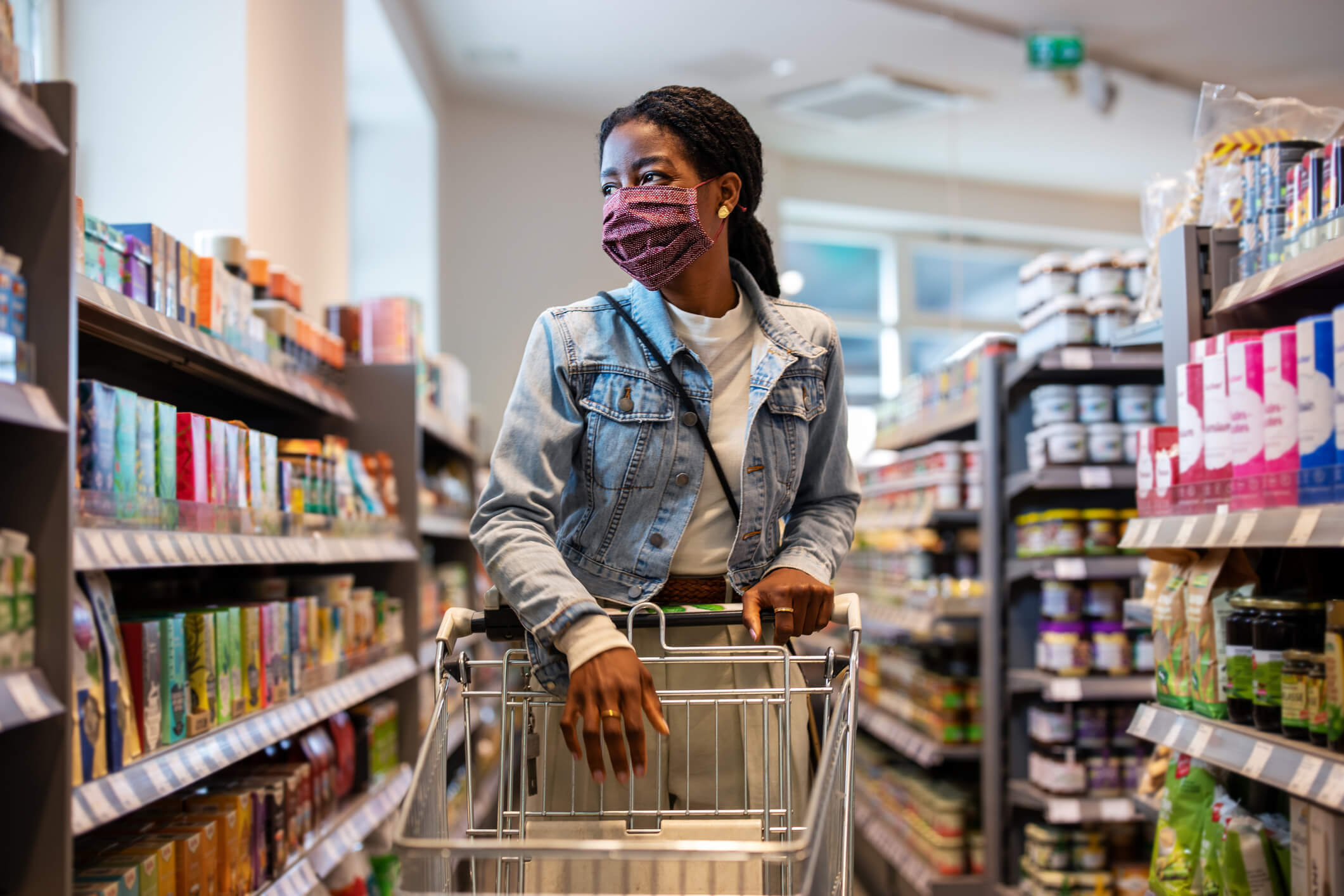
Every link in the retail supply chain was optimized, and then countries went into lockdown and other measures to address the pandemic. Even if they were just a small link in the chain, each of those disruptions had the potential to stop the whole chain. Our Carrefour supply chain has held up. While there are a lot of entrepreneurs with ideas and energy, they need time to repair these things.
People — customers, employees, and suppliers — are at the core of our activities. As we want to be the best digital retail company, we have to put people at the center of what we do. In particular, customers must be our top priority because the customer is the real boss of the company.
Under the leadership of our CEO Alexandre Bompard, we have transformed Carrefour, in France, in three ways. The first is cultural transformation. The second is organizational transformation – to simplify, make the business faster and more agile, and reduce the number of layers between the base and the summit. And the third is IT transformation. Our obsession is to ensure that every single employee - people who work in warehouses, logistics and IT, cashiers and other store employees- take an active role in this transformation.

Voices of the Industry
HOME
Voices of the industry
Foreword
How Retailers Are Turning Upheaval Into Opportunities
Rami Baitieh
To Be The Best Digital Retail Company, We Have To Put People At The Center Of Our Activities
Duncan MacNaughton
Consumer Goods Manufacturers must listen to their workforce
Silviu Popovici
we put sustainability at our core, to create positive change for both planet and people
Thomas Jonas
Fy will feed astronauts!
Marcel Haraszti
We made one of Europe’s most ambitious retail transformations happen during COVID
Malina Ngai
We’re working relentlessly to promote inclusion and diversity
Philippe Guettat
Premiumization has been key to the success of our wine and spirits brands
Nina Jönsson
Our store of the future must be a destination: full of inspiration, innovation, and sustainability
Richard McKenzie
We built our technology system for grocery
